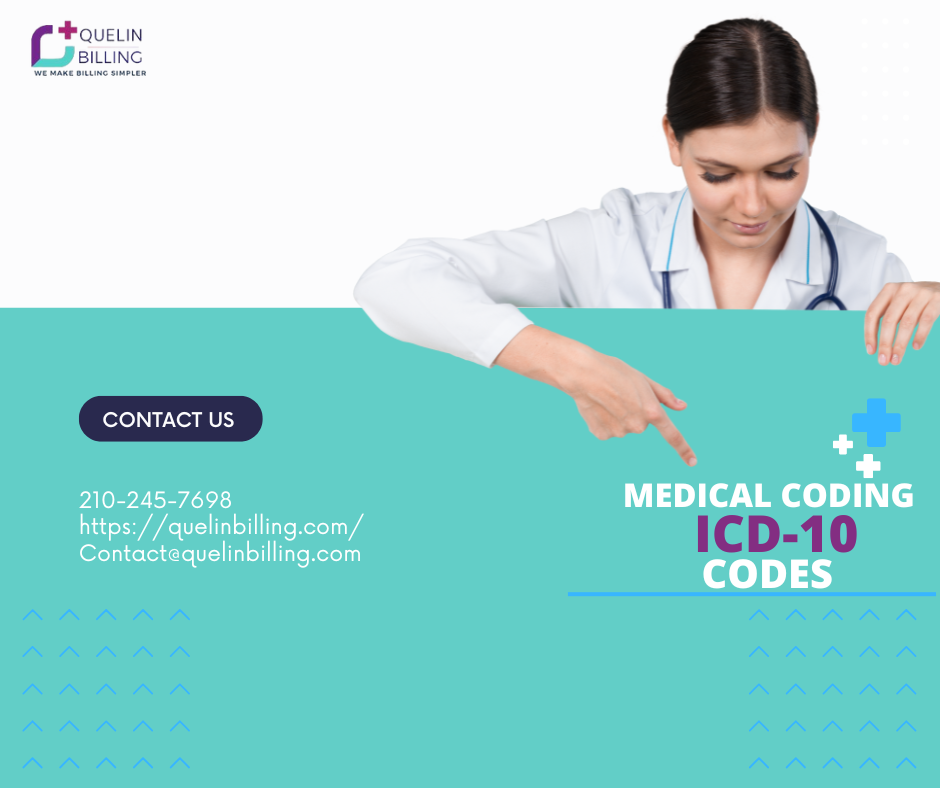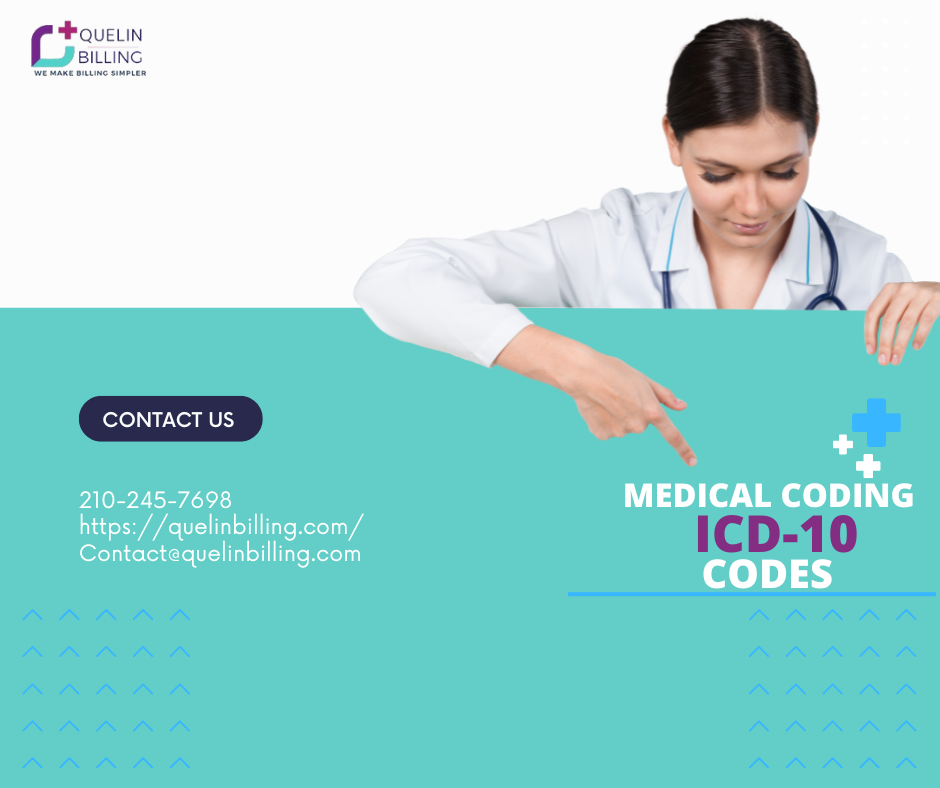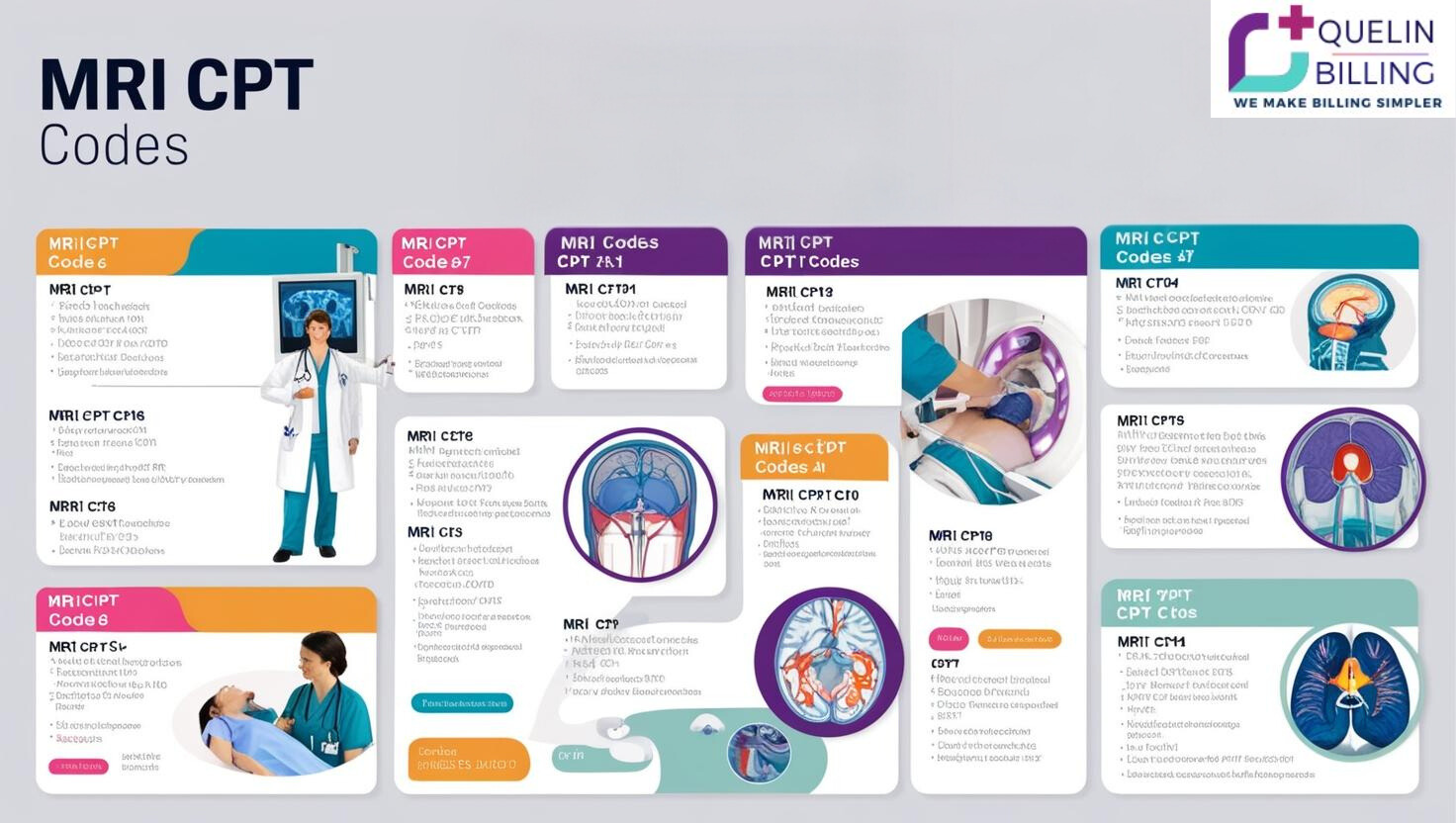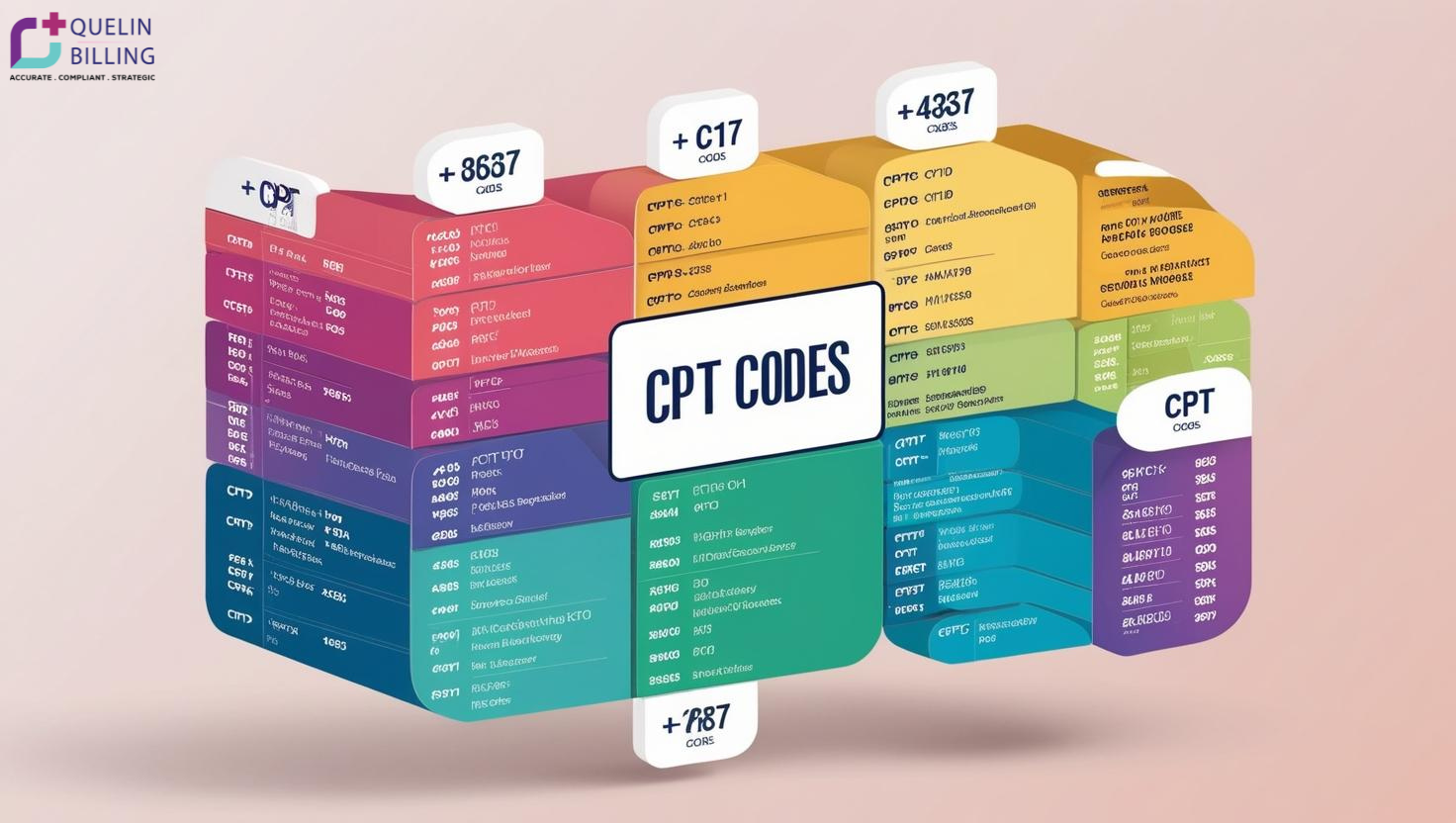- Quelin Billing LLC
Mostly Used ICD 10 Codes | Importance of ICD 10 Codes in Healthcare
Ronnie S
December 26, 2024

The International Classification of Diseases, Tenth Revision (ICD-10), revolutionized medical coding with its specificity and global applicability. As a cornerstone of healthcare billing and clinical documentation, ICD-10 allows medical professionals to precisely document diagnoses and procedures. In this comprehensive guide, we will explore common ICD-10 codes across various conditions, the challenges associated with coding, and strategies to ensure accuracy.
What is ICD-10?
ICD-10 is a coding system established by the World Health Organization (WHO) to standardize the classification of diseases and health conditions globally. It includes:
ICD-10-CM (Clinical Modification):
Used for diagnosis coding in outpatient and inpatient settings.ICD-10-PCS (Procedure Coding System):
Used for inpatient procedural coding.
The Importance of ICD-10 Codes in Healthcare
ICD-10 codes facilitate clear communication among healthcare providers, insurance companies, and regulatory bodies. Accurate coding is essential for:
- Ensuring proper reimbursement.
- Tracking public health trends.
- Supporting medical research.
Commonly Used ICD-10 Codes
Here’s an overview of some frequently encountered ICD-10 codes by category:
Gastrointestinal Conditions
- Abdominal Pain (R10.9): General abdominal pain not otherwise specified.
- GERD (K21.9): Gastroesophageal reflux disease.
- Constipation (K59.00): Unspecified constipation.
- Small Bowel Obstruction (K56.69): Other specified intestinal obstruction.
- Gastroenteritis (K52.9): Noninfectious gastroenteritis and colitis, unspecified.
- ICD-10 Code for GERD (K21.9): Gastroesophageal reflux disease.
Cardiovascular Diseases
- Coronary Artery Disease (I25.10): Atherosclerotic heart disease.
- Congestive Heart Failure (I50.9): Unspecified heart failure.
- Hypertension (I10): Essential (primary) hypertension.
- Paroxysmal Atrial Fibrillation (I48.0): Paroxysmal atrial fibrillation.
- Tachycardia (R00.0): Rapid heart rate, unspecified.
- ICD-10 CAD (I25.10): Coronary artery disease.
Respiratory Disorders
- COPD (J44.9): Chronic obstructive pulmonary disease, unspecified.
- Asthma (J45.909): Unspecified asthma, uncomplicated.
- Cough (R05): Symptom code for cough.
- Dyspnea (R06.02): Shortness of breath.
- Sleep Apnea (G47.33): Obstructive sleep apnea.
- ICD-10 Code for SOB (R06.02): Shortness of breath.
Musculoskeletal Conditions
- Low Back Pain (M54.5): Chronic or acute back pain.
- Osteoarthritis (M19.90): Unspecified osteoarthritis.
- Neck Pain (M54.2): Pain localized to the cervical region.
- Shoulder Pain (M25.519): Pain in unspecified shoulder.
- Spinal Stenosis (M48.00): Spinal stenosis, site unspecified.
- ICD-10 Code for Shoulder Pain (M25.519): Pain in the shoulder.
Mental Health
- Depression (F32.9): Major depressive disorder, single episode, unspecified.
- Anxiety (F41.9): Generalized anxiety disorder.
- Insomnia (G47.00): Unspecified insomnia.
- Bipolar 1 Disorder (F31.9): Bipolar disorder, unspecified.
- Autism (F84.0): Childhood autism.
- ICD-10 Code for Anxiety Disorder (F41.9): Generalized anxiety disorder.
Endocrine and Metabolic Disorders
- Hypothyroidism (E03.9): Unspecified hypothyroidism.
- Diabetes Type 2 (E11.9): Without complications.
- Vitamin D Deficiency (E55.9): Unspecified vitamin D deficiency.
- Dyslipidemia (E78.5): Hyperlipidemia, unspecified.
- Obesity (E66.9): Obesity, unspecified.
- ICD-10 Code for Vitamin D Deficiency (E55.9): Unspecified vitamin D deficiency.
Infectious Diseases
- Pneumonia (J18.9): Unspecified organism pneumonia.
- UTI (N39.0): Urinary tract infection, site not specified.
- Sepsis (A41.9): Unspecified sepsis.
- Sinus Infection (J01.90): Acute sinusitis, unspecified.
- URI (J06.9): Upper respiratory infection, unspecified.
- ICD-10 UTI (N39.0): Urinary tract infection.
Other Common Conditions
- Rheumatoid Arthritis (M06.9): Rheumatoid arthritis, unspecified.
- Neuropathy (G62.9): Unspecified polyneuropathy.
- Epilepsy (G40.909): Epilepsy, unspecified, not intractable.
- Dysphagia (R13.10): Difficulty swallowing, unspecified.
- Thrombocytopenia (D69.6): Other thrombocytopenia.
- Palpitations (R00.2): Sensation of irregular heartbeat.
- Onychomycosis (B35.1): Nail fungal infection.
- Pulmonary Nodule (R91.1): Solitary pulmonary nodule.
- ICD-10 Code for Dysphagia (R13.10): Difficulty swallowing.
- ICD-10 Hematuria (R31.9): Hematuria, unspecified.
Challenges in ICD-10 Coding
- Complexity and Specificity
ICD-10’s detailed structure can lead to coding errors. For instance, differentiating between “Abdominal Pain (R10.9)” and “Left Lower Quadrant Pain (R10.32)” requires careful review of clinical documentation.
- Frequent Updates
New codes and revisions can impact reimbursement and compliance. Staying informed is critical.
- Time Constraints
Manual coding can be time-intensive, especially for practices handling high patient volumes.
Best Practices for Accurate ICD-10 Coding
- Thorough Documentation Providers must document diagnoses comprehensively, including laterality, severity, and other clinical details.
- Utilize Technology Leverage Electronic Health Records (EHR) and coding software with ICD-10 code lookup functionalities.
- Regular Training Coders and billing staff should undergo continuous education to stay updated on coding guidelines.
- Audits and Feedback Conduct regular audits to identify common errors and provide corrective feedback.
How Quelinbilling Can Help
At Quelinbilling, we specialize in streamlining medical billing processes. Our expert coders ensure accurate ICD-10 coding, reducing claim denials and maximizing reimbursements. We offer:
- Real-Time ICD-10 Code Lookup: Minimize errors and save time.
- Comprehensive Training: Equip your team with the latest coding knowledge.
- Custom Solutions: Tailored services to meet your practice’s unique needs.
Conclusion
ICD-10 codes play a pivotal role in modern healthcare. Understanding and applying these codes accurately is essential for operational efficiency and compliance. By partnering with a trusted billing company like Quelinbilling, healthcare providers can focus on patient care while we handle the complexities of medical coding.
Powered By EmbedPress
Have Any Question?
Reach out to Quelin Billing for expert assistance in medical billing, coding, and practice management, tailored to your healthcare needs.
- 210-245-7698
- [email protected]





